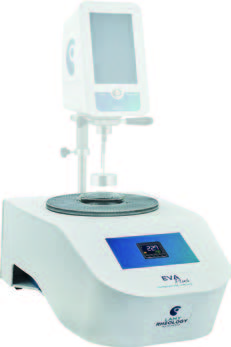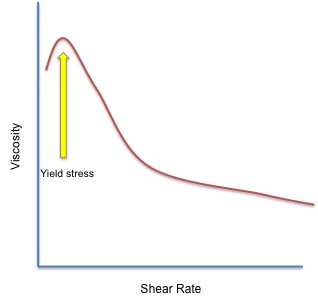When people hear of viscosity for the first time, invariably they ask these three questions:
Read MoreTopics: Newtonian Fluid, Measure Viscosity, Viscometers, Viscosity, Viscosity in Food
Topics: "Ask Art", Newtonian Fluid, Measure Viscosity, Viscometers, Viscosity
New Methods of Controlling Sample Temperatures [Water Baths to Peltier Plates]
Posted by Amanda Ranowsky on Jun 24, 2019 8:30:00 AM
Peltier temperature control is becoming more common in viscosity testing, but traditional water baths are still the norm for many companies. Should you switch Peltier-based temperature control for you critical samples?
Read MoreTopics: Measure Viscosity, Viscometers, Viscosity, viscometer, rotational viscometer, differences in rotational viscometers
What are Viscosity Flow Curves?
A flow curve – also known as a rheogram – is a graphical representation of how a flowing material (fluid) behaves when it is subjected to increasing or decreasing shear rates. The corresponding shear stress and viscosity are calculated from the instrument’s parameters. You can tell what type of fluid (Newtonian/Non-Newtonian, thixotropic, dilatant, etc.) the sample is by the shape of the flow curve.
Read MoreTopics: Measure Viscosity, Viscometers, Viscosity
What are Liquid Properties? Why Should Anyone Care?
Posted by Art Gatenby on Aug 10, 2017 2:59:24 PM
The first question is, "What are Liquid Properties?" Are they some kind of underwater real estate?
Read MoreTopics: Automatic Surface Tension Measurment, Measure Viscosity, Consistency, contact angle, Liquid Properties, density
How to Get Consistent and Accurate Test Results with a Rotational Viscometer
Posted by Amanda Ranowsky on Mar 22, 2017 8:00:00 AM
Most rotational viscometer specifications promise high test accuracy and repeatability. However, an instrument on its own cannot guarantee accurate results. Instrument set-up and using the right test parameters are critical pieces of the puzzle.
Test parameters and turbulence are two key factors to consider when preparing to test with a rotational viscometer. The spindle, speed setting, and temperature of the product are some of the parameters that can impact test results. Additionally, turbulence in the sample’s flow during a test will distort viscosity readings. Knowing how to manage these two factors can significantly contribute to the accuracy of your testing.
Read MoreTopics: Measure Viscosity, Viscometers, Viscosity, Dynamic Viscosity, rotational viscometer, Liquid Properties






